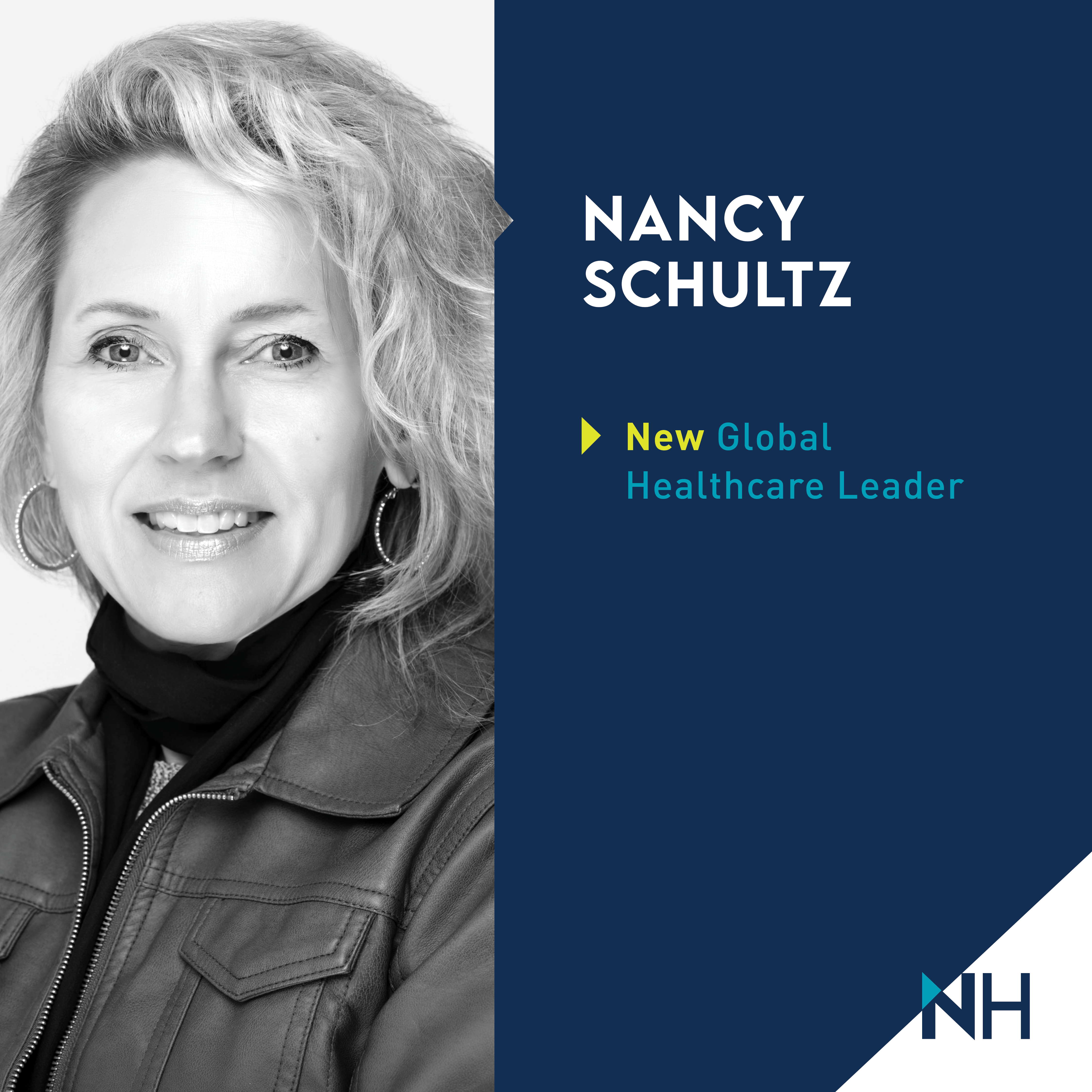
We recently announced the appointment of Nancy Schultz as Global Healthcare Leader. A highly respected leader and executive, Nancy has been with us for 22 years and was instrumental in building our presence in Nashville. Her focus now turns to working with a team of experienced healthcare executives to build for future growth. In this interview, she discusses her new role and where she sees the industry heading, especially amid growing consolidations and telehealth options.
Tell us about your new role—what will it entail?
Our group of exceptional industry experts here at North Highland has always supported committed healthcare clients. However, since the start of the pandemic, the focus on healthcare has grown; it’s part of everybody’s daily life and conversation. And it’s continuing to evolve too—even how it’s administered from a provider standpoint is changing.
We want to lean in, throwing the spotlight on healthcare in a meaningful way that allows us to solve complex issues for our clients. In my role, I’ll be focused on driving innovation and change in four core areas:
- Digital enablement – This is about helping clients use smarter, faster, and predictive information to improve patient data interoperability. COVID-19 propelled the need for digital tools, and we’re ensuring our clients materialize the benefits of that.
- Care settings – We enable our clients to rethink healthcare, helping them look beyond the confines of the hospital walls and towards a landscape which includes more telehealth options, home health, and remote patient monitoring. It’s innovation around reaching patients in their location, and the phase of health care they need.
- Health system consolidation – This involves guiding the industry through impending changes—whether that’s building, buying or partnering as consolidation continues, pre- and post-merger integrations, or process design and workforce predictability.
- Disruption – New entrants are entering the space, and clients need to know how to adjust their offering to ensure they remain competitive.
My mission is to address healthcare’s new challenges with strategies that ultimately lead to patient satisfaction, operational excellence, reduced staff burnout, and increased turnover and growth opportunities.
Why are you so passionate about the healthcare industry?
I’ve worked in healthcare for about 22 years, ever since I helped open the office here in Nashville. Why? Simply put, healthcare is a part of all our lives. Populations are living longer and need more adequate support.
The questions I always contemplate are: ‘how do we continue to provide fantastic healthcare?’ and ‘how do we meet our clients where they are and move patients where they need to be?’ I’m lucky to have the opportunity to lead in a space that can create so much impact and help answer these questions.
What interesting industry trends have you noticed—and what do you think will stick?
Of the hospital provider systems we know today, 50 to 60 percent of them will be gone, consolidated, in the next three years—reducing their number of hospital beds by 44 percent. One of the strategic projects we’re working on now is hoping to mitigate that by helping providers put more healthcare in people’s homes. My dad was a World War II veteran—we lost him right before COVID-19 at the age of 93, and we were able to keep him home. We felt blessed to do so. More people are looking for these types of experiences and we’re helping the healthcare industry make these transitions.
Telehealth was also gaining popularity before the pandemic, but it just couldn’t seem to get off the ground because it wasn’t reimbursed at the federal level until recently. I see telehealth as a major advancement—unless people must go to the hospital, they can consult with a physician, assistant, or nurse virtually.
Healthcare IT and post-merger integrations are at the fore of healthcare right now too. When it comes to IT, it’s about the enablement and optimization of the digital channels (such as staff smartphone apps) that are now becoming standard. And when it comes to post-merger integrations, it’s about ensuring everyone’s on the same page, which includes optimizing digital channels for efficiency and effectiveness.
What changes do you anticipate over the next 5-10 years?
There will be a focus away from hospitals unless people have an acute issue. Long-term care is changing as people live longer; they have different expectations and want their experiences to match that. Consumers will have more options like surgery centers and outpatient settings from an ambulatory standpoint, and much more technology as well. These things are here now, and we’re helping clients add more strategy from the beginning to the end.
What’s more, the workforce is changing. We’re even finding movement within our clinician clients, who are looking at different pricing strategies. They’re figuring out where a physician’s assistant or mid-level nurse might be used instead of a medical doctor, and we’re helping them reimagine these changes to boost efficiency while maintaining a high quality of care.
Behavioral health is transforming too. We’re supporting clients with their Medication Assisted Treatment (MAT) programs. Due to the opioid epidemic, addiction centers must rethink how they find and treat patients. We’re going to see more work in this area to combat recidivism.
To find out more about North Highland's work in the healthcare space, take a look at our dedicated industry page or get in touch with a member of the team.